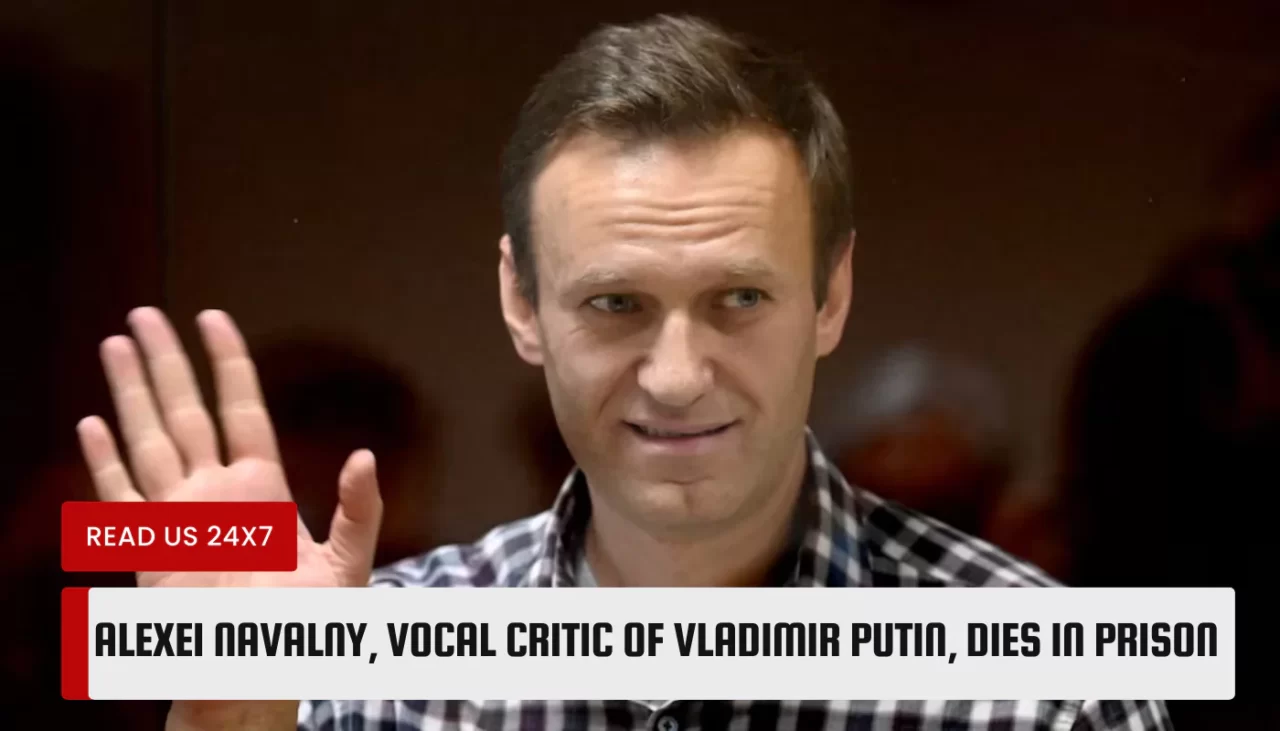Alexei Navalny, a prominent Russian opposition leader and a vocal critic of President Vladimir Putin, died in prison on February 14, 2024. He was 48 years old. Navalny was sentenced to 19 years in prison on extremism charges in January 2024, after returning to Russia from Germany, where he had been recovering from a poisoning attempt. His death sparked outrage and condemnation from Western officials and Kremlin critics, who accused Putin and his administration of orchestrating Navalny’s murder. Navalny’s death also dealt a severe blow to the Russian opposition, which had been rallying behind him as a symbol of resistance and hope.
Who is Alexei Navalny?
Alexei Navalny was a Russian opposition leader, a vocal critic of President Vladimir Putin, an anti-corruption activist, and a center of political controversy in Russia. He rose to prominence in 2008, when he started blogging about corruption and malpractice in the Russian government and state-owned companies. He exposed several high-profile scandals, such as the embezzlement of billions of dollars by Putin’s allies and the lavish lifestyles of the ruling elite. He also organized mass protests and rallies against Putin’s regime, calling for fair elections and democratic reforms. He founded the Anti-Corruption Foundation, a nonprofit organization that investigated and exposed corruption cases, and the Russia of the Future party, a political platform that challenged Putin’s United Russia party. He ran for mayor of Moscow in 2013, coming in second with 27% of the vote. He also planned to run for president in 2018, but was barred from doing so by the authorities, who claimed he had a criminal record.
Navalny’s Imprisonment and Death
Navalny was sentenced to 19 years in prison on extremism charges in January 2024, after returning to Russia from Germany, where he had been recovering from a poisoning attempt. He was arrested at the airport, and accused of violating the terms of a suspended sentence he had received in 2014 for embezzlement, a charge he denied and said was politically motivated. He was also charged with creating and leading an extremist organization, which he said was a pretext to silence him and his supporters. He was held in a maximum security prison in Pokrov, about 100 kilometers east of Moscow, where he faced harsh conditions and constant harassment. He went on a hunger strike in February 2024, demanding proper medical care and access to his lawyers. He died on February 14, 2024, after losing consciousness in his cell. The prison authorities said he died of natural causes, but his family and allies said he was murdered by the Kremlin.
Reaction and Repercussions
Navalny’s death sparked outrage and condemnation from Western officials and Kremlin critics, who accused Putin and his administration of orchestrating Navalny’s murder. They called for an independent and transparent investigation into the circumstances of his death, and for sanctions and pressure on Russia to respect human rights and democracy. They also expressed their solidarity and support for Navalny’s family and followers, and praised his courage and legacy. The US President said Navalny was “a hero of our time, who sacrificed his life for the cause of freedom and justice”. The UK Prime Minister said Navalny was “a brave and principled man, who exposed the corruption and tyranny of Putin’s regime”. The EU President said Navalny was “a voice of truth and hope, who inspired millions of Russians to demand change”.
Navalny’s death also heightened the tension and scrutiny in Russia, where the authorities faced a wave of protests and civil disobedience from Navalny’s supporters and sympathizers. Thousands of people took to the streets in Moscow and other cities, chanting “Navalny lives” and “Putin is a murderer”. They clashed with the police, who used tear gas, batons, and water cannons to disperse them. Hundreds of people were arrested and detained, including Navalny’s wife, Yulia, and his closest allies, such as Lyubov Sobol, Leonid Volkov, and Ivan Zhdanov. The opposition also called for a nationwide strike and a boycott of the upcoming parliamentary elections in September 2024, in which Putin’s party was expected to win a majority.
Navalny’s death also decimated the Russian opposition, which had been rallying behind him as a symbol of resistance and hope. Navalny was widely seen as the most popular and charismatic leader of the anti-Putin movement, and the only one who could pose a serious challenge to Putin’s grip on power. He had a large and loyal following, especially among the young and urban voters, who admired his courage, honesty, and vision. He had also built a network of regional offices and volunteers, who campaigned for his cause and candidates across the country. His death left a huge void in the opposition, which lacked a clear and unified strategy and leadership. Many of his supporters felt hopeless and disillusioned, and feared for their safety and future.
Conclusion
Alexei Navalny, a vocal critic of Vladimir Putin, died in prison on February 14, 2024. He was sentenced to 19 years in prison on extremism charges, after returning to Russia from Germany, where he had been recovering from a poisoning attempt. His death sparked outrage and condemnation from Western officials and Kremlin critics, who accused Putin and his administration of orchestrating Navalny’s murder. His death also heightened the tension and scrutiny in Russia, where the authorities faced a wave of protests and civil disobedience from Navalny’s supporters and sympathizers. His death also decimated the Russian opposition, which had been rallying behind him as a symbol of resistance and hope. Navalny was a prominent Russian opposition leader, an anti-corruption activist, and a center of political controversy in Russia. He exposed the corruption and malpractice of the Russian government and state-owned companies, and organized mass protests and rallies against Putin’s regime. He was a hero of our time, who sacrificed his life for the cause of freedom and justice. He will be remembered and honored by millions of people around the world.


